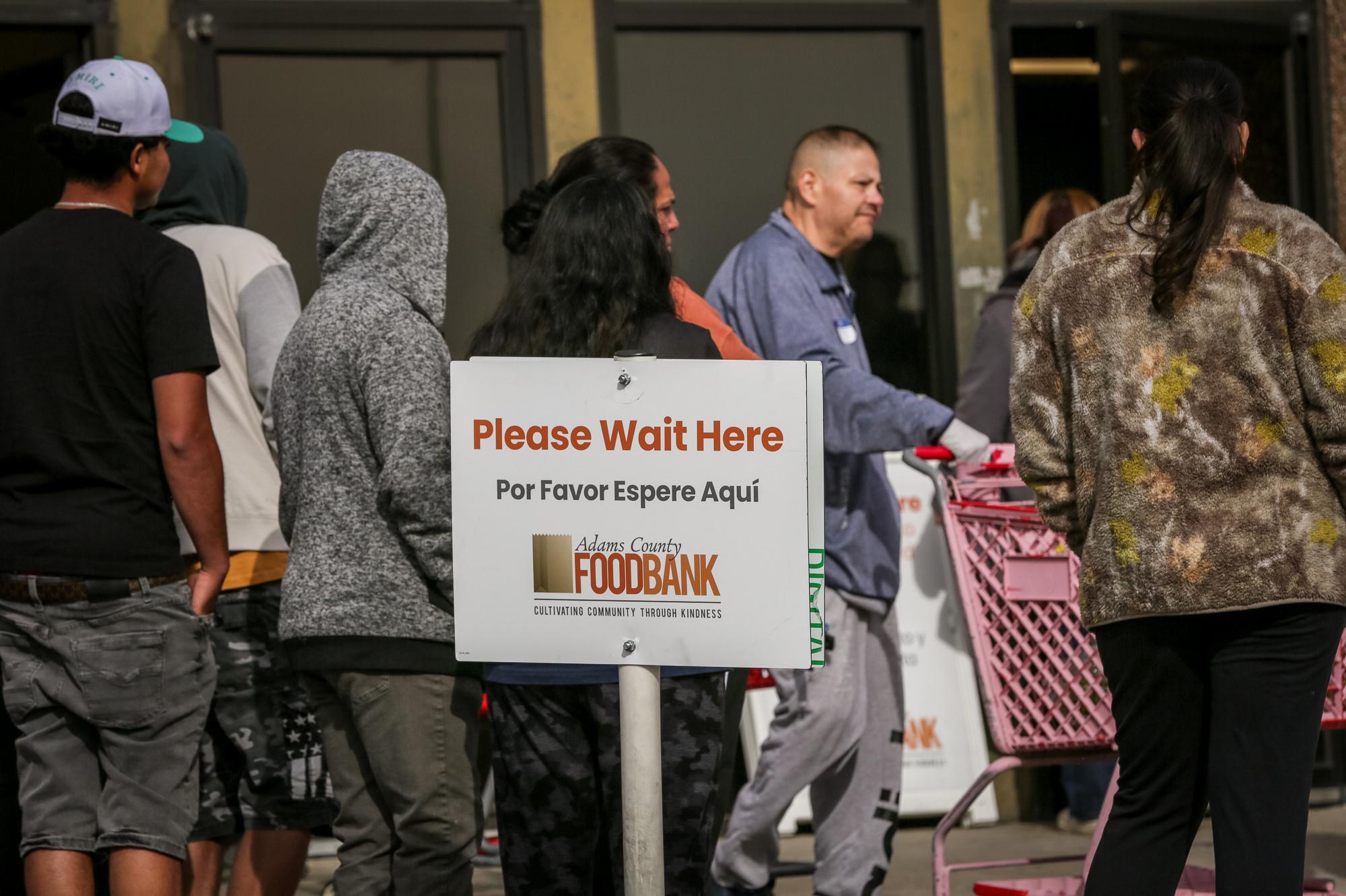

State officials are encouraging probation officers to offer up more information to immigration authorities about their clients than the law requires — including helping Immigration and Customs Enforcement make arrests at probation appointments.
Guidance from the State Court Administrator to the state’s 22 judicial districts obtained by Colorado Public Radio states that probation officers should notify ICE if they don’t believe a person sentenced to probation was born in the United States.
In Denver and Adams counties, officials go farther and give detailed instructions for how ICE should carry out arrests at probation appointments.
The Colorado Hispanic Bar Association says they know clients picked up at workplaces and one at an addiction treatment meeting — both are requirements a person on probation may have to fulfill as part of an agreement reached with a judge.
“They are trying to comply with probation, trying to make a victim whole, trying to do what’s right, and through forces out of their control, they are being prevented from doing what’s right,” said Christine Hernandez, a private attorney and president-elect of the Colorado Hispanic Bar Association.
The fall out, advocates say, is that the state’s judicial system is getting bogged down by missed appointments because immigrants are fearful they will get deported. This means victims aren’t getting restitution and that warrants are being issued for people who may have already left the country, which disqualifies them from ever applying to return, lawyers said.
The Colorado Hispanic Bar Association, along with other civil rights groups, are pressuring state officials to pull back the guidance and encourage probation departments to simply follow the federal law. This requires probation officers to provide country of citizenship and immigration status to ICE — but only if they request it.
Going beyond that, including giving federal officers appointment times or places of work, is not serving the public interest, the legal group said.
“It’s complicating and tearing apart families unnecessarily in the United States,” Hernandez said. “It interferes with the justice system and their day in court.”
State officials had no comment on this story. Mike Garcia, head of probation services at the Office of the State Court Administrator, declined an interview request. Messages left with chief judges in Denver and Adams County, both districts have adopted the state’s guidance as policy, were not returned.
ICE officials had no immediate comment on the policies, but spokesman Carl Rusnok pointed out that they have worked with probation departments and other law enforcement partners for decades.
Rusnok also said he was not aware of anyone making arrests at addiction treatment meetings or urine analysis sites, noting that it might violate the “sensitive locations” protocol, which means they don’t make immigration arrests in certain personal places or gatherings. He also noted that ICE doesn’t discuss law enforcement methods or sources.
Arapahoe County District Attorney George Brauchler said he hasn’t noticed the new policy negatively affecting his ability to try cases. Asked whether he thought it interfered with the state’s judicial system to have undocumented immigrants pulled out of probation agreements and detained, he said no.
“For probation, that’s just tough. What do you say to the community?” said Brauchler, who is also a 2018 candidate for state Attorney General. “Yep, here illegally, yep, committed a crime, yep, had all his constitutional rights upheld, he was convicted and now we’re going to put him back in the community where he shouldn’t be?”
Immigration attorneys across the city say they are increasingly representing people who have been picked up at probation appointments or at places required by probation agreements — like work parking lots.
“This makes the state’s judicial system ICE’s lackey,” said Hans Meyer, an immigration attorney and advocate in Denver. “This predates the Trump administration, but it’s become so much more aggressive and so much more pronounced now.”
Mark Silverstein at the American Civil Liberties Union of Colorado said the state’s judicial system should be able to function free and clear of federal immigration law enforcement.
“Probation means the judge has decided against expelling a particular person from the community, so when a probation officer then takes steps to see the probationer fail, that only undermines the purpose,” he said. “It also foments a mistrust of probation officers that could have long effects, probationers will reasonably fear coming to probation appointments.”
Read The Guidance
Editor's Note: This story was updated to clarify the title of Christine Hernandez. She is the president-elect of the Colorado Hispanic Bar Association, not the current president as an earlier version of this story noted.









